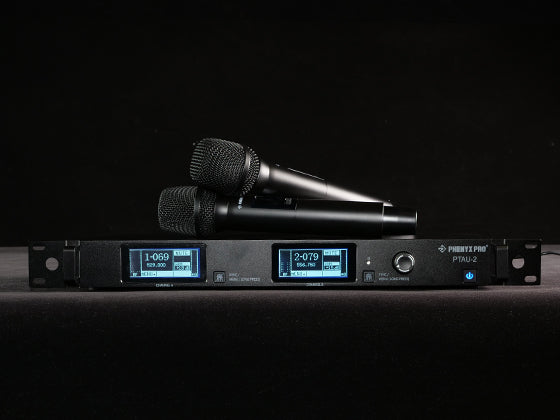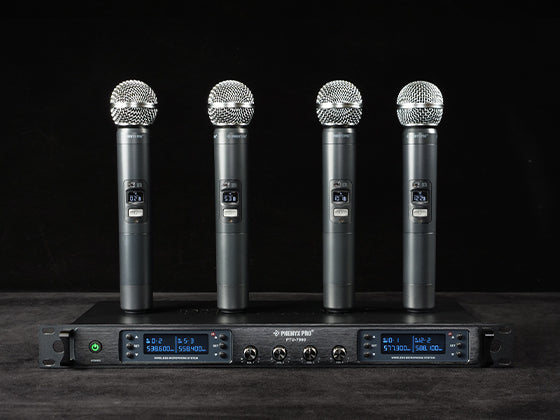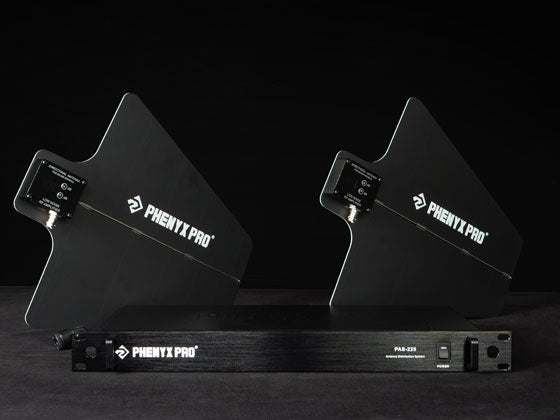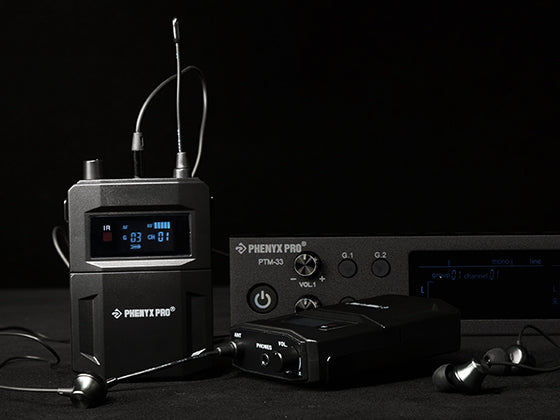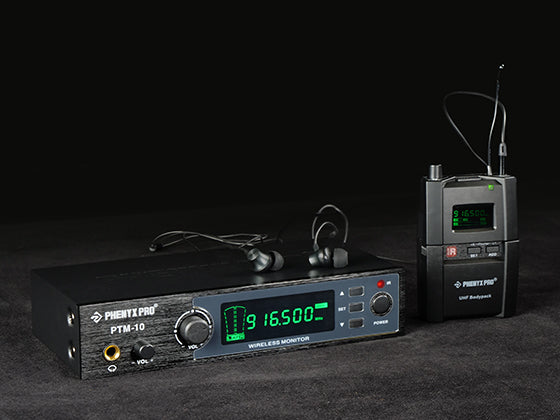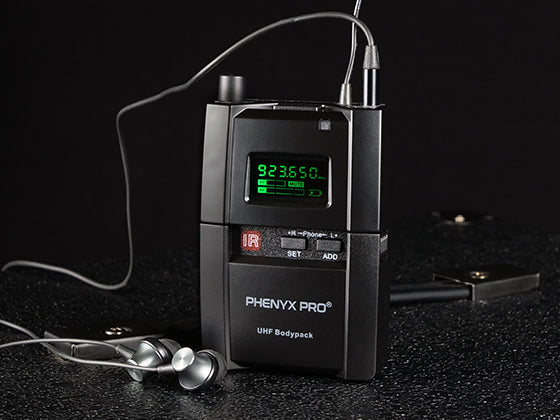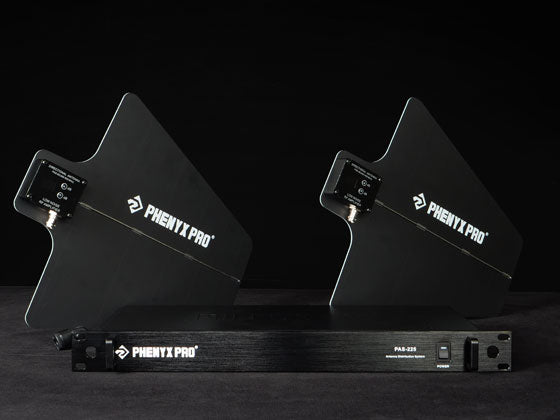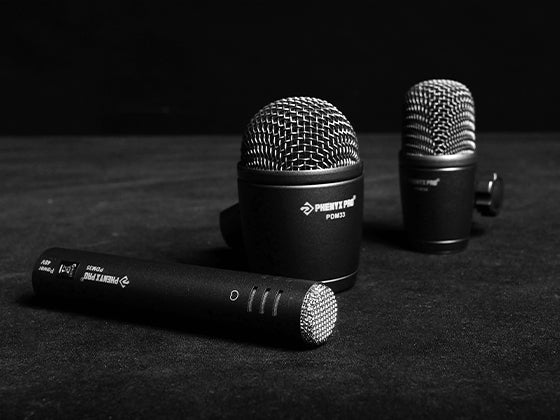Wired vs. Wireless Microphones:
Which One Is Right for You?
Choosing a microphone isn’t about which one is better — it’s about what matters most to you: clear sound, stage freedom, or simple setup. In this article, we break down the key differences to help you make the right choice for your sound.

Wired mic or wireless mic? It’s a common question for anyone setting up a sound system—whether for performance, recording, or everyday use. Both types have their strengths, and the right choice depends on your specific needs. In this article, we’ll compare the two types of microphones from multiple angles to help you understand the differences and decide which option is the best fit for you.
Signal Stability
When it comes to microphone performance, signal stability is one of the most important factors to consider. Wired microphones are often praised for their consistent and interference-free transmission, as the direct cable connection ensures a steady audio signal with minimal risk of dropouts or external disruption. This reliability makes them a popular choice in controlled environments like studios or permanent installations.
In contrast, wireless microphones are inherently more susceptible to interference due to their reliance on radio transmission. However, with the continuous development of audio technology, many mid- to high-end wireless microphone systems now incorporate a range of advanced technologies to mitigate signal instability.
Our PTAU-2 wireless microphone system, for instance, integrates true diversity circuitry, which effectively reduces signal dropouts by intelligently selecting the stronger of two independent RF signals in real time. It also features a built-in spectrum analyzer, enabling users to identify clean, interference-free frequencies prior to operation—greatly reducing the risk of interference and supporting stable performance even in congested RF environments.
Thanks to these innovations, wireless systems like the PTAU-2 can deliver reliable and consistent signal performance, often comparable to wired setups in terms of stability and clarity. Naturally, such advanced systems typically come at a higher cost.
In conclusion, if you're looking for reliable signal performance on a tighter budget, wired microphones are generally the more cost-effective and stable option.
Sound Quality
Sound quality is often a top concern when comparing wired and wireless microphones. In fact, both have their own pros and cons in this regard.
Wireless microphone systems—particularly analog models—inevitably involve a process called companding. In this process, signals are compressed in the transmitter and then sent to the receiver in the way of radio wave propagation in order to expand back to the original audio ready for use. As a result, wireless systems may experience slight sound degradation, especially in entry-level models or older analog designs.
However, with technological advancement, many modern wireless systems are capable of delivering high-quality sound. For example, our PTU-1U/2U series utilizes high-end analog circuitry to ensure stable, full-range audio transmission. Furthermore, wireless systems based on digital transmission are able to avoid the companding process altogether. They transmit audio data in a pure digital format, offering CD-quality sound. A great example is our PDP-1/2 series, which delivers professional-grade clarity through digital signal paths, making it ideal for users who demand both mobility and sound quality.
Wired microphones, on the other hand, transmit audio directly without any compression or conversion. This generally results in cleaner, more reliable sound—making them a top choice for studio recording, broadcasting, and any setting where absolute audio fidelity matters.

Mobility and Convenience
Mobility is a key advantage of wireless microphones. Imagine being a singer on stage—free from the limitations of cables, you're able to move across the stage, interact with the audience, and perform with energy and confidence. This freedom makes wireless microphones ideal for dynamic scenarios such as shows, public speaking, or any event where performers need to move around without being tied to one spot.
Wired microphones, by nature, are limited by their cables, which restrict the user's movement. In live settings where freedom of movement is essential, this can become a drawback. Excessive cabling on stage can also lead to cluttered setups and increased tripping hazards, posing safety risks and creating additional challenges for performers and stage crews alike. However, in controlled environments—such as recording studios or fixed-position performances—mobility isn’t essential, so the limitation is far less relevant.

Complexity of Setup
Setting up a wired microphone is simple and straightforward. Just plug it into your audio interface or mixer, and it’s ready to go—no need to deal with frequency selection, battery checks, or pairing. The ease of setup ensures that users can focus on other aspects of their performance or presentation without getting caught up in technical configurations.
On the other hand, wireless microphones generally require more setup time. Users must ensure proper syncing between the transmitter and receiver and select a suitable frequency to avoid interference. Additionally, signal strength between the transmitter and receiver needs to be checked frequently to prevent interference or connection loss. If the signal becomes too weak, users can try repositioning the transmitter and receiver, or consider using a signal booster when necessary.
To simplify this process, our Auto-Scan UHF Series—featuring models like the PTU-71, PTU-7000, and PTU-6000—offers adjustable frequencies, auto-scan function, and frequency locking functions. These features help reduce setup complexity and ensure stable connections even in busy RF environments. In most cases, this added effort is a small trade-off for the freedom during live events.
Maintenance Need
No matter which type you choose, storing your mic in a dry, dust-free place is key to preventing moisture damage and corrosion.
However, there are some practical differences in handling and transport. Wired microphones typically consist of a single handheld unit with a relatively compact and straightforward design. This makes them easier to store, pack, and transport. In contrast, wireless systems often include both a transmitter and a receiver, and professional-grade models may feature rack-mounted receivers and additional accessories. While these systems offer greater flexibility in use, they may require more space for storage and extra care during transport.
With proper care, both wired and wireless microphones can deliver long-lasting performance. So the better fit really comes down to your setup needs and how you plan to move and store your gear.

Conclusion
Choosing between wired and wireless microphones comes down to your budget and your need for mobility.
If your budget is limited and mobility isn’t a priority, wired microphones offer simplicity and stability at an affordable price—ideal for fixed setups like studios or presentations.
In contrast, if your performance involves more movement, a wireless system is the better fit. Budget-conscious users can consider our PTU-52 or PTU-71 series, while those seeking top-tier reliability can opt for our true diversity systems like the PTAU series. Wireless systems do require more setup and maintenance—perhaps that’s often the trade-off for freedom on stage.
At Phenyx Pro, we specialize in wireless audio solutions, but we understand that wired and wireless microphones aren’t opposites—they’re complementary. In the world of audio, there's no one-size-fits-all solution. That’s why we’re continuously expanding our wired product line as well—to ensure every performer finds the right tool for their unique needs and setting. Whether you're on a budget or aiming for professional performance, Phenyx Pro offers both wired and wireless solutions to power your sound.
Related Products
EXPLORE FURTHER
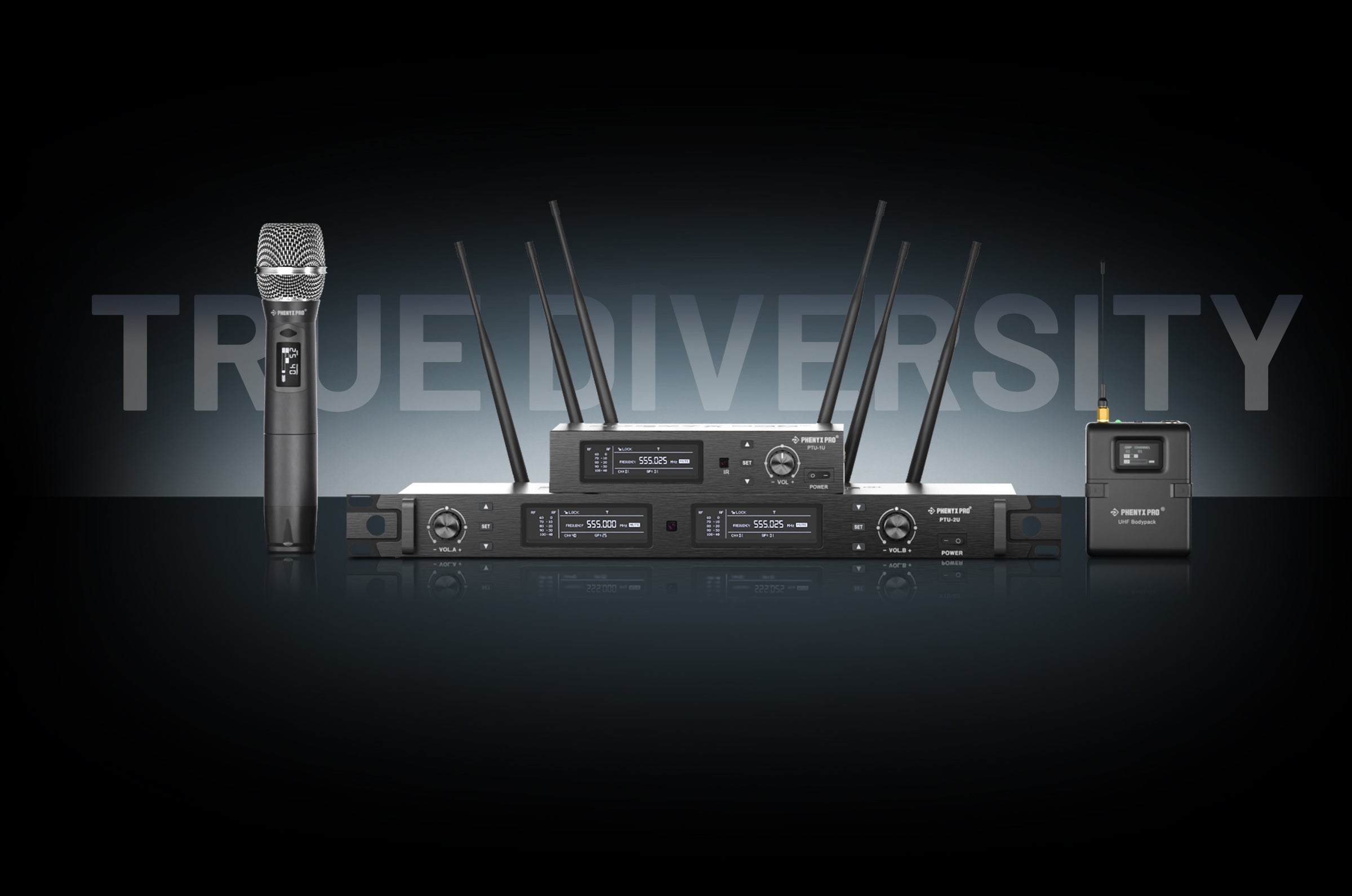
Introducing the PTU-1U/2U Wireless Microphone Systems
Phenyx Pro proudly presents the completed True Diversity Series (PTU-1U/2U) wireless microphone system this November. Dive into this blog for an insightful look at this acclaimed, powerful gear, highly praised by Vitruvia, an inspiring post-hardcore band. Click to discover what makes it so exceptional.
Learn More
Introducing the PDP-1/2 Wireless Microphone
Thanks to the growing mature digital circuitry, Phenyx Pro launched PDP-1 and PDP-2 to render diverse wireless audio experience for our customer. This blog will guide you to glance over the pros of digital system and the newly-launched PDP-1/2.
Learn More
